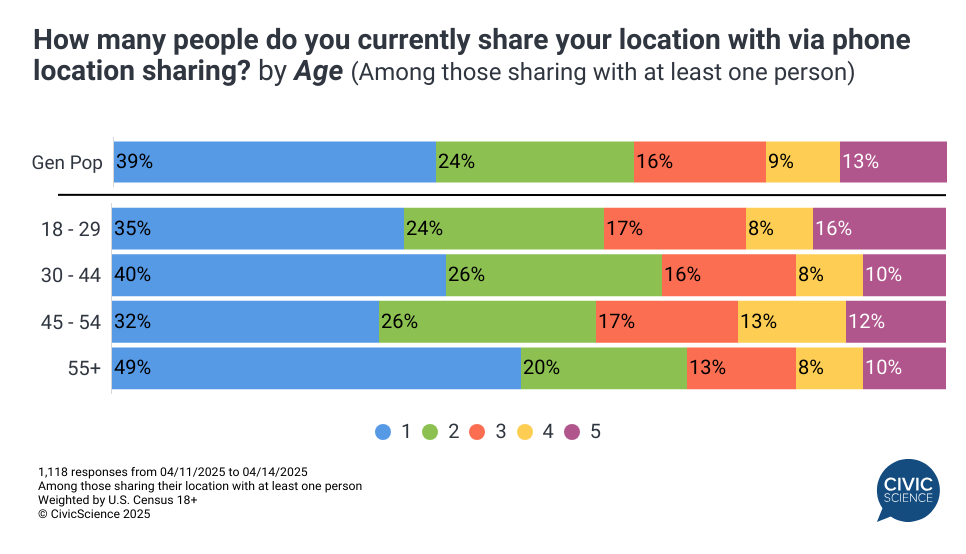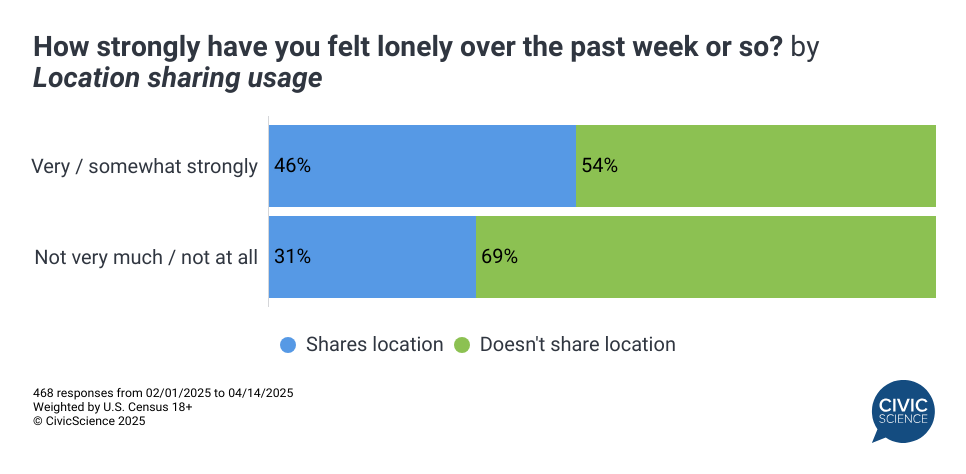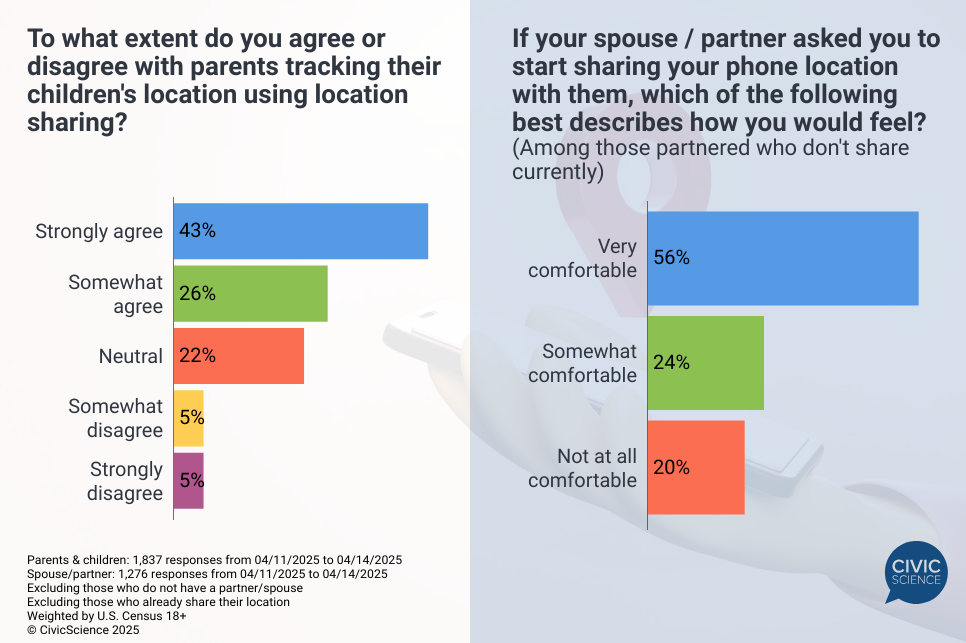This is just a tiny glimpse of the data available to CivicScience clients. Discover more data.
Location sharing offers people a way to ensure their loved ones are safe with the ability to monitor where they are in real-time. Just how common is the use of location sharing among Americans? The latest CivicScience data find that 41% of U.S. adult respondents report they currently share their location with at least one person. Gen Z adults aged 18-29 are the most likely to use location sharing (65%), outpacing Millennials (45%) and Gen X (42%) and more than doubling those 55+ (24%).
Additional data suggest location sharing with multiple other people is quite common. Among those currently utilizing location sharing, 61% report sharing their location with at least two people, including 22% who share with four or more others. Gen Xers are the most likely to share with 3+ people, which is unsurprising given they’re likely to have the most family connections, including children, parents, and a spouse or partner.

Join the Conversation: Do you actively share your phone location with your partner, family, or friends?
Speaking of who Americans are sharing their location with, their spouse or partner (52%) is by far the most common person (among those who share their location with someone). Beyond them, one-third of respondents share with their children. Interestingly, users are more likely to share location with their friends (27%) than they are with their siblings (25%). Perhaps less surprisingly, friends also outpace parents (24%) and roommates (9%).
In addition to who they share their location with, CivicScience data also point to an emotional dimension. Among adults who have felt lonely in the past week, 46% report sharing their location with someone, compared to 31% of those who haven’t felt much—if any—loneliness at all lately. As the overall well-being of the average American continues to decline, location sharing may offer a sense of connection during an increasingly stressful and uncertain time.

While sharing location with others may inspire concerns about trust and privacy, most Americans seem open to the idea of location sharing. First, when it comes to whether people believe it’s okay for parents to track their children’s location, the strong majority—nearly 7 in 10—agree with parents doing this. This majority extends across all adult age groups.
Even among couples who haven’t turned on location sharing, most say they’d feel at least ‘somewhat’ comfortable if their partner asked to start sharing. Women are a touch more open to it than men, with slightly higher overall comfort levels (83% vs. 81%) and more reporting they’d be ‘very’ comfortable (60% vs. 56%).

Use this Data: CivicScience clients use insights like these to understand consumer sentiments and monitor any shifts in real time, helping them adjust strategies to drive growth and retention.
Location data is quite sensitive, so how concerned are those who share their location with someone about the general possibility of their personal data being hacked/stolen from the companies they use? CivicScience data show that the vast majority (88%) are at least ‘somewhat’ concerned about hacks in general—not specific to location sharing. That said, they are slightly less likely than non-users (90%) to be concerned about being victimized by a hack.
Take our Poll: How comfortable are you with smartphone apps accessing your location?
The data reveal a clear trend: location sharing is not only widespread but often extends to multiple people, especially among Gen Z and Gen X. This points to a growing comfort with—and even expectation of—real-time visibility within personal networks, whether for safety, coordination, or simply staying connected. While data privacy is a concern among users, it’s not something that appears to be a serious roadblock in the quest for connection with loved ones.








